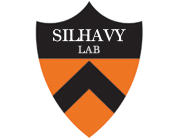Nonconsecutive disulfide bond formation in an essential integral outer membrane protein
Type
The Gram-negative bacterial envelope is bounded by two membranes. Disulfide bond formation and isomerization in this oxidizing environment are catalyzed by DsbA and DsbC, respectively. It remains unknown when and how the Dsb proteins participate in the biogenesis of outer membrane proteins, which are transported across the cell envelope after their synthesis. The Escherichia coli protein LptD is an integral outer membrane protein that forms an essential complex with the lipoprotein LptE. We show that oxidation of LptD is not required for the formation of the LptD/E complex but it is essential for function. Remarkably, none of the cysteines in LptD are essential because either of two nonconsecutive disulfide bonds suffices for function. Oxidation of LptD, which is efficiently catalyzed by DsbA, does not involve the isomerase DsbC, but it requires LptE. Thus, oxidation is completed only after LptD interacts with LptE, an interaction that occurs at the outer membrane and seems necessary for LptD folding.

